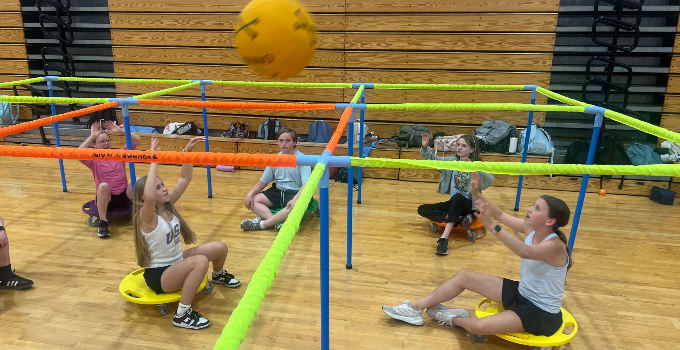Long before the invention of modern gyms and fitness programs, communities around the world relied on traditional sports to stay healthy, connected, and resilient. These sports were not merely competitions — they were expressions of culture, teamwork, and identity. Rooted in local customs and values, traditional games fostered physical endurance, emotional well-being, and social unity. From wrestling tournaments in Africa to archery festivals in Bhutan, traditional sports continue to play a vital role in promoting community wellness, preserving heritage, and inspiring modern fitness philosophies.
The Cultural Role of Traditional Sports
Traditional sports are deeply woven into the social fabric of many civilizations. They often reflect the geography, climate, and lifestyle of the people who play them. For example, snow-based games evolved in colder regions like the Arctic, while combat and hunting-based sports developed in warmer areas. Beyond physical exercise, these games serve as cultural storytelling — celebrating bravery, cooperation, and moral values. They teach discipline to youth, strengthen community ties, and preserve customs that might otherwise fade with modernization.
Physical and Mental Health Benefits
The health benefits of traditional sports go far beyond physical strength. Activities like wrestling, stick fighting, and running promote cardiovascular fitness, flexibility, and endurance. Meanwhile, the communal nature of these games supports emotional health by fostering belonging, reducing stress, and creating joy. Participation in culturally meaningful sports also enhances self-esteem, particularly in younger generations, by connecting them to ancestral traditions. Studies have shown that such culturally rooted physical activities contribute to overall wellness — improving mood, reducing anxiety, and enhancing social cohesion.
Table: Examples of Traditional Sports Promoting Health and Community Wellness
| Region/Culture | Traditional Sport | Core Focus | Health & Community Benefits |
|---|---|---|---|
| South Asia (India, Pakistan) | Kabaddi | Agility, teamwork, strategy | Boosts endurance, promotes teamwork, strengthens rural unity |
| East Asia (Japan) | Sumo Wrestling | Balance, strength, ritual discipline | Builds core power, preserves cultural rituals |
| Africa (Senegal, Nigeria) | Traditional Wrestling | Strength, honor, and pride | Improves muscle fitness, connects communities through festivals |
| Europe (Scotland) | Highland Games | Strength-based competitions | Enhances community pride, develops physical power |
| South America (Mexico, Peru) | Ulama (ancient Mesoamerican ball game) | Team coordination, agility | Promotes cooperation and historical awareness |
| Central Asia (Mongolia, Kazakhstan) | Horseback Wrestling / Archery | Coordination, endurance | Strengthens mind-body connection, celebrates heritage |
Kabaddi: The Heartbeat of South Asian Communities
Kabaddi, a fast-paced contact sport originating in South Asia, is a symbol of teamwork and endurance. Played across villages and urban centers alike, it combines wrestling, strategy, and breath control. Physically, it enhances stamina, reflexes, and muscular coordination. Culturally, it strengthens social bonds and community identity, especially in rural areas where it’s often part of local festivals. Its revival in professional leagues has turned it into a bridge between tradition and modern athleticism, inspiring younger generations to reconnect with their roots through sport.
African Wrestling: Power, Pride, and Tradition
Wrestling in Africa is not just a sport — it’s a cultural ceremony. In countries like Senegal, Niger, and Nigeria, wrestling matches are grand community events featuring music, dance, and storytelling. Physically, wrestlers develop immense strength, flexibility, and agility. Mentally, the sport teaches perseverance, discipline, and respect. For spectators, wrestling symbolizes unity and cultural pride, reminding communities of their shared heritage. These traditions continue to inspire modern fitness and martial arts disciplines across the continent and beyond.
Japan’s Sumo: Strength in Ritual and Respect
Sumo wrestling is one of Japan’s most iconic traditional sports, combining physical power with deep spiritual significance. Each match begins with ritual purification using salt, representing cleansing of the mind and body. Sumo promotes balance, discipline, and endurance, while teaching respect for hierarchy and tradition. Although it demands great physical effort, its focus on mental composure and spiritual purity mirrors the holistic wellness philosophies found throughout Japanese culture.
Indigenous Sports and Connection to Nature
Many Indigenous communities around the world developed sports that connect physical movement with the natural world. Native American lacrosse, originally known as “The Creator’s Game,” was played not just for recreation but also for healing, gratitude, and community prayer. Similarly, Arctic peoples developed endurance games like the high kick and seal hop to prepare for survival in extreme environments. These sports cultivate adaptability, focus, and resilience — qualities that remain essential for mental and physical health in modern life.
Traditional Games as Tools for Social Inclusion
Traditional sports have long been instruments of social inclusion and unity. They provide platforms for intergenerational bonding, where elders teach youth both skills and cultural wisdom. In multi-ethnic societies, shared sports traditions can break social barriers and foster harmony. For instance, traditional boat races in Southeast Asia bring communities together to celebrate teamwork and water-based livelihoods. In this way, traditional games act as social glue, promoting cooperation and respect across social divides.
Reviving Traditional Sports in the Modern World
In recent years, many governments and cultural organizations have worked to revive traditional sports as tools for public health and heritage preservation. Festivals, school programs, and global competitions now highlight games like Kabaddi, Sepak Takraw, and Mongolian archery. Beyond recreation, these revivals offer alternatives to sedentary lifestyles, combat digital isolation, and promote inclusive wellness. Integrating traditional sports into modern fitness education also encourages respect for cultural diversity while inspiring healthier communities.
Mindfulness and Spiritual Balance in Traditional Games
While modern sports often emphasize performance and competition, traditional games frequently focus on balance, mindfulness, and community spirit. Practices such as martial arts, Tai Chi, or ritual dances link physical movement with emotional and spiritual well-being. They promote awareness of breath, posture, and intention — key components of holistic health. These philosophies resonate with modern wellness trends that value mind-body harmony and social connection as foundations of true fitness.
The Global Relevance of Traditional Sports Today
Traditional sports continue to offer timeless lessons in wellness and togetherness. In an era of urbanization and digital lifestyles, these games remind people of the importance of movement, nature, and human connection. Their inclusive spirit — where everyone, regardless of age or background, can participate — makes them powerful tools for building healthier, happier societies. Preserving and adapting traditional sports for contemporary audiences not only sustains cultural identity but also ensures that future generations inherit more than just physical fitness — they inherit community wisdom.
FAQs
1. How do traditional sports promote community wellness?
Traditional sports strengthen social bonds by encouraging teamwork, intergenerational learning, and community celebrations. They foster belonging and emotional support while promoting physical health.
2. Why are traditional sports important in modern society?
They preserve cultural heritage, encourage active lifestyles, and counteract the isolation of modern living. Traditional sports also teach values such as respect, discipline, and cooperation.
3. Can traditional sports be integrated into modern fitness programs?
Yes. Many traditional sports can be adapted to contemporary training methods. Incorporating their philosophies and techniques adds diversity, cultural depth, and sustainability to modern fitness routines.



